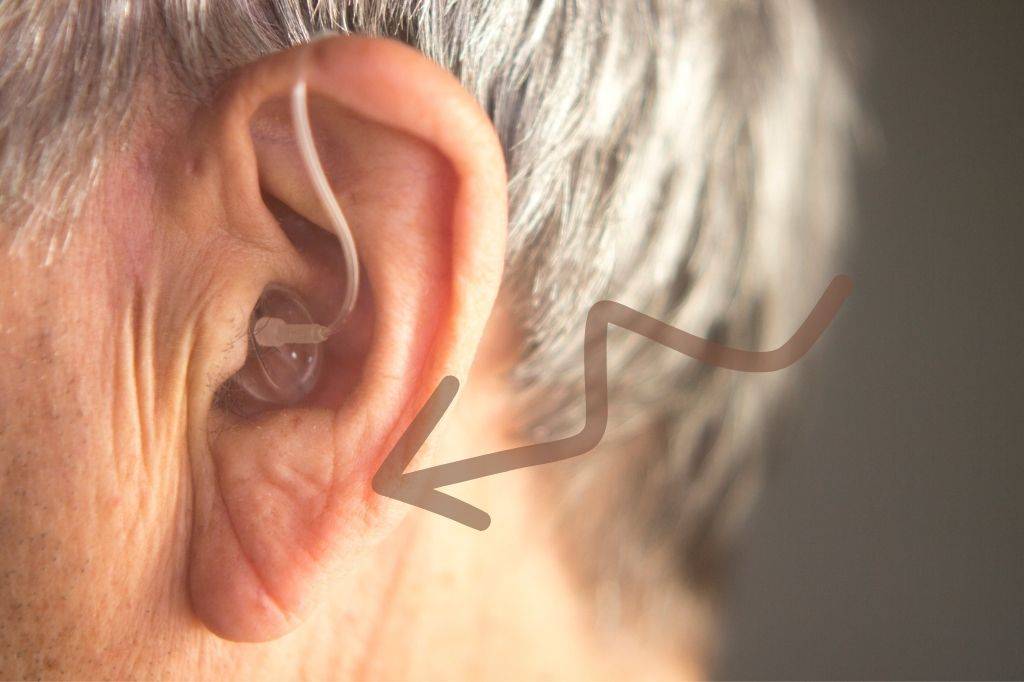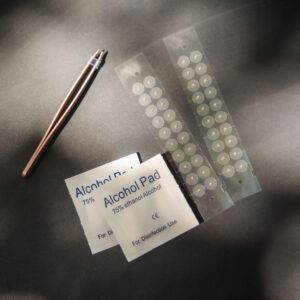The ears tell the tale of what’s going on in the body, giving a past medical history and, in some instances, foretelling what’s ahead if no healthy lifestyle changes are made.
To keep from veering off the homeostatic highway, an ear assessment can be helpful — and the sooner the better. In this article, we’ll share some signs to look for regarding what ears say about your health.
Bumps, blood vessels, flakes and other ear signs of dysfunction
The ears can communicate to us in many different ways what is going on inside and outside the body.
Here’s what we’ve observed with our clients through in-person and virtual consultations, as well as extensive research in auricular (meaning “of the ear”) therapy:
Inflammation issues
- Chronic inflammation can show up on the ear as a white bump.
- Acute inflammation from a recent or current injury will be red.
Pain, numbness, and circulatory issues
- Blood vessels running across the ear can mean many things: chronic or acute pain, numbness and tingling, poor circulation and more.
- Circulatory system issues can also show up when dryness, flakiness, thinning of the helix or abnormal grooves and folds of the helix are visible.
Allergies and skin conditions
- White flakiness can be a sign of allergic reactions or skin conditions such as contact dermatitis.
Reproductive statuses or hormonal issues
- Flakes in the triangular fossa or a greasy/oily triangular fossa can indicate vaginal discharge.
- A bright red color in the same area can indicate a menstrual period in progress.
- When the intertragic notch is narrowed or widened, hormone disregulation should be suspected.
Vision issues
- At the Vision II point a small protrusion suggests nearsightedness.
- An elongated protrusion shows farsightedness.
Digestive issues
- Indentations or depressions in the U-shape around the helix crus can indicate duodenitis, ulcerative colitis and other gut inflammatory conditions.
Ear and mouth issues
- Other angular lines running on the ear lobe can indicate tinnitus, hearing loss, and missing teeth.
Ear signs indicating trouble ahead: An example from pop culture
In the case of being able to note trouble ahead, an astute auriculotherapist (someone who performs acupuncture or acupressure on the ear) can watch the 1960s sitcom, Gomer Pyle, U.S.M.C., catch a glimpse of Sergeant Carter’s earlobe, and notice the undeniable heart line traveling vertically from the intertragic notch to bottom of the lobe.
This is the heart line and is not visible unless something is awry. Indeed, Frank Sutton, who played Sergeant Carter, passed away at 50 from a heart attack, a few short years after the last episode of the series aired.
Wexu’s approach to what ears say about your health
In his book The Ear: Gateway to Balancing the Body, A Modern Guide to Ear Acupuncture, Dr. Mario Wexu, D. AC. provides his own interpretation of ear colors that tell you what ears say about your health.
Here’s a quick summary of Dr. Wexu’s approach to ear exams and pathology based on the hue of the ear:
- Orange: suggestive of digestive, spleen, cholesterol, or liver issues
- Pale yellow: suggestive of digestive or spleen issues, vitamin deficiencies, or conjunctivitis; dry pale yellow ears are suggestive of chronic conditions, including cancer
- Dark red: suggestive of high blood pressure, artery/circulation, or heart issues, migraines, low back pain, and/or kidney issues; dark red and hard ears indicate a possible impending stroke, and these signs should be taken very seriously
- Hard and very dark: another serious issue, indicating severe and chronic kidney problems
- Gray: chronic conditions with a high propensity toward internal complications of one or more body systems
Dr. Wexu also addresses various ear textures, such as red points, white points, gray points, red swelling around ear scars, and skin peelings that are hard to rub off. For more information on what what ears say about your health according to Dr. Wexu, review pages 54-55 of his book.
To sum it up
In conclusion, the ears are not just for hearing; they are intricate sensory organs that can reveal valuable information about your health.
Remember that these ear signals are potential indicators only, and reading signs of the ears does not replace a comprehensive exam, diagnosis, or analysis from a health professional.



